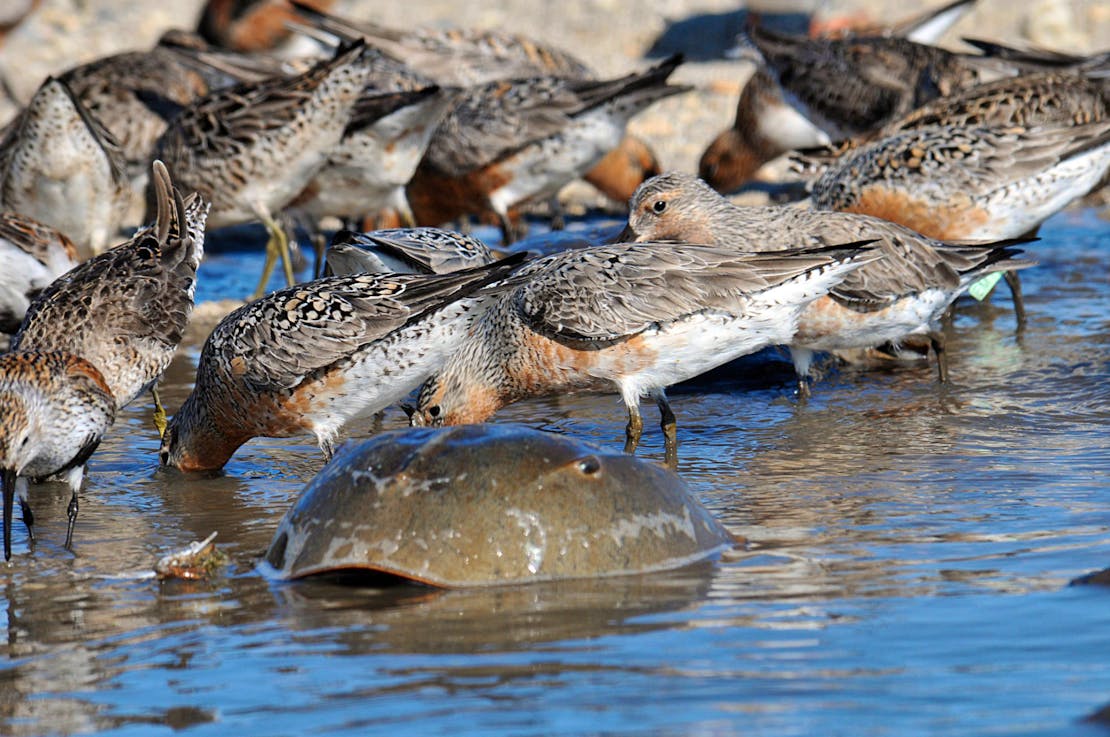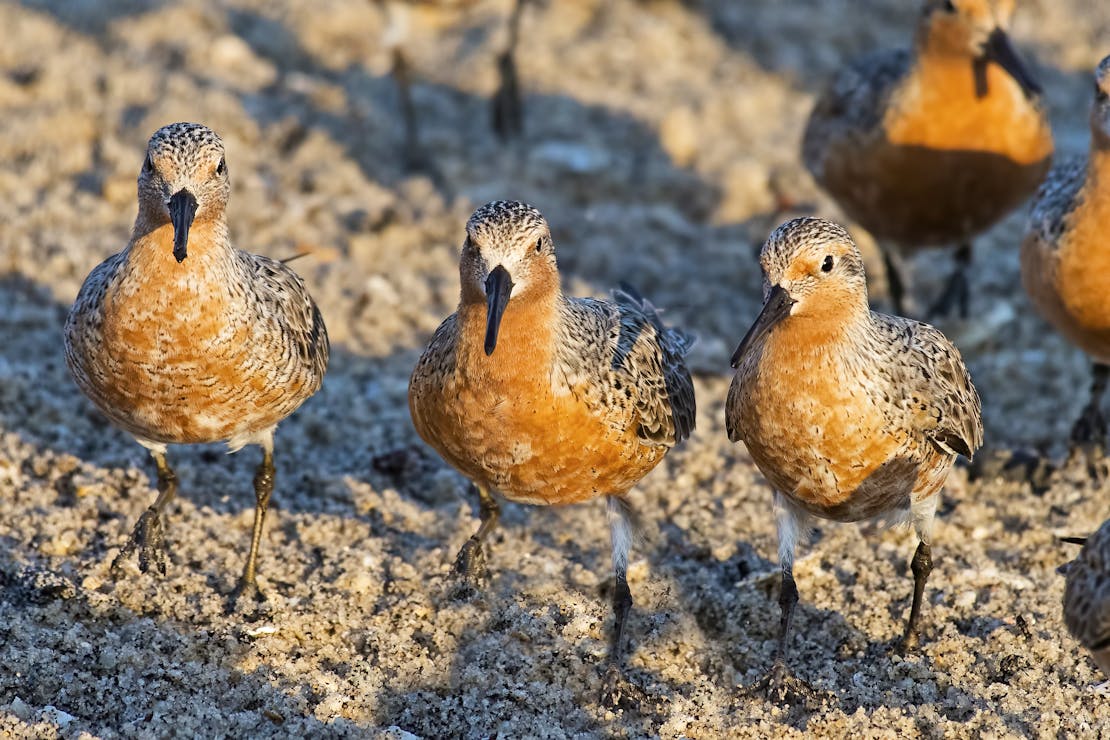Yesterday, the Southern Environmental Law Center, on behalf of Defenders of Wildlife and the Coastal Conservation League, obtained a major win for threatened red knots just as they come to South Carolina to feed on newly spawned horseshoe crab eggs. The District Court’s order enacts smart, focused restrictions on horseshoe crab harvest, closing the 2023 harvest altogether on all critical red knot stopover beaches as proposed by the Fish and Wildlife Service, as well as several additional beaches identified by the South Carolina Department of Natural Resources.
“These shorebirds have evolved to visit South Carolina at exactly the right time to essentially double their body weight in horseshoe crab eggs,” says Riley Egger, Land, Water, and Wildlife Program Director at the Coastal Conservation League. “Once you take horseshoe crabs from the beach and hold them elsewhere, you disturb an incredibly delicate balance between the two species.”
Charles River Laboratories, a multibillion-dollar pharmaceutical company, harvests many thousands of horseshoe crabs from South Carolina’s beaches to extract their blood for use in the biomedical industry. Before Charles River Labs takes up to half of their blood, horseshoe crabs wait in holding ponds, a practice only allowed in the state of South Carolina. Because the crabs cannot spawn on the state’s beaches, the threatened red knot is unable to feast on its critical, nutrient-rich food source of horseshoe crab eggs. During their 9,000-mile migration each spring, each red knot must consume several hundred thousand horseshoe crab eggs to survive the trip.
Thanks to the court’s order, this vital food source will now be restored to South Carolina’s red knot beaches during the 2023 spring migration season.
“This settlement is a welcome reprieve for the threatened red knot,” said Ben Prater, Defenders of Wildlife Southeast Program Director. “For years, Charles River Laboratories has overharvested horseshoe crabs, depleting a vital food source for red knots. As these long-distance migrants return to the shores of South Carolina this month we are grateful they now have a better chance to thrive.”
The order also requires Charles River Labs’ compliance with important permit terms from the Department of Natural Resources, which bars the practice of keeping female crabs in holding ponds. These terms are now enforceable under the court order.
“What a victory for red knots,” said Catherine Wannamaker, SELC senior attorney. “There is no better way to protect this bird than to end harmful harvesting on critical stopover beaches and prevent females from going to holding ponds. SC is a much better place for wildlife today.”
This represents the second major win for red knots in SC in weeks — in March, the U.S. Fish and Wildlife Service issued a draft determination that horseshoe crab harvesting in Cape Romain National Wildlife Refuge is not compatible with the purpose of the refuge, to protect migrating shorebirds. This order closes all other critical stopover beaches to harvesting, including Turtle Island where the harvest has been intense in recent years.
For over 75 years, Defenders of Wildlife has remained dedicated to protecting all native animals and plants in their natural communities. With a nationwide network of nearly 2.1 million members and supporters, Defenders of Wildlife is a leading advocate for innovative solutions to safeguard our wildlife for generations to come. To learn more, please visit https://defenders.org/newsroom or follow us on X @Defenders.
Media Contact
News

Trump Administration Announces First Step in Rolling Back Rule Protecting Whales





